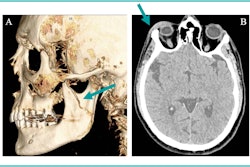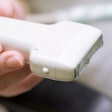
A radiology-oriented transgender curriculum showed success in increasing radiologists' awareness about transgender patients, according to a study published March 11 in Academic Radiology.
Awareness about transgender patients' particular needs is key to providing them with good care, wrote a team led by Dr. Charmi Vijapura from the University of Cincinnati in Ohio.
"As future radiologists, it [is] important for residents to learn about a transgender patient's history, anatomy, and experiences that could impact their study interpretation," Vijapura and colleagues wrote.
While about 1.6 million U.S. individuals ages 13 and older identify as transgender, there is a lack of trans-related research in medicine, including radiology journals. Physician training and education transgender patient care are also lacking, the researchers wrote.
"By understanding the needs of transgender patients, radiology residents can help promote an equitable and inclusive environment in radiology departments," they noted.
Vijapura and colleagues explored radiology resident attitudes and experiences with a curriculum they created that outlines best practice care for transgender patients, including imaging considerations.
To evaluate the curriculum, they interviewed 10 residents who participated in it with open-ended questions in four monthly sessions, focusing on four themes: impactful/memorable aspects, things learned, increased awareness, and suggestions/feedback. Additionally, subthemes the team identified in their interviews with residents included patient stories, appropriate radiology reporting, and patient interactions.
The researchers noted that, after going through the curriculum, residents showed increased awareness and knowledge of transgender patient care in medicine and radiology. The following are a few examples of responses from residents:
- "The most impactful [session] was definitely the one with the panel," one resident said. "The reason, I think, is getting it firsthand and having a discussion with people who are in the community.... Getting an insight into how they think, the experiences they had with the healthcare system, hearing their stories was kind of incredible to listen to and get a lot more personal feel of what's really their perspective."
- "[The curriculum will have positive effect on] how I dictate my reports and think about the images I'm seeing," another said.
- "[The curriculum has made me] more cognizant of the gender ... [keeping] in mind that's there's a person behind the image and not to just say things freely that could hurt them," a third resident said.
Vijapura and colleagues noted that to ensure recurring exposure to the transgender curriculum, semiannual sessions will the incorporated into their institution's lecture cycle. They also suggested that developing a universally applicable curriculum would be a key step in integrating transgender care and imaging as routine parts of radiology training.
"Research on various other methods of design, implementation, timing, and duration of a transgender imaging curriculum would add to the current lack of literature," the team concluded.




















